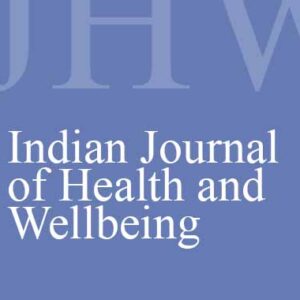The Relationship between Sense of Coherence, Perception of Aging and Quality of Life among Older Adults
Original price was: ₹ 201.00.₹ 200.00Current price is: ₹ 200.00.
Page: 192-195
Varnaya Sanghvi and Darshana Kulkarni (Department of Psychology, Manniben Nanavati Women’s College, S.N.D.T. University, Mumbai, Maharashtra)
Description
Page: 192-195
Varnaya Sanghvi and Darshana Kulkarni (Department of Psychology, Manniben Nanavati Women’s College, S.N.D.T. University, Mumbai, Maharashtra)
Research in the field of developmental psychology tends to leave out the older adult population, focusing on children or young adults. Within the context of changing societal structures, this research aims to understand how older adults make sense of and perceive the challenges that come with aging, and how that impacts their quality of life. The current study investigated the relationship between sense of coherence (SOC), Perceptions of Aging (POA) and Quality of Life (QOL), and whether SOC and POA predicted QOL among older adults in Mumbai. The study was conducted with the help of a survey using a correlation study design. In the study, Sense of Coherence 29 Scale (Antovsky, 1987) Brief Aging Perceptions Scale (Sexton et al., 2014); and Quality of Life Scale (Flanagan, 2003); were used. Convenience sampling was used to collect the data from 105 participants falling under the age group of 50-65. The data indicated the sense of coherence and perception of aging are significantly positively correlated with quality of life. Furthermore, regression analysis indicated that SOC and POA predicted QOL in a significant manner. Plausible explanations of results and its implications are further discussed.


